When Dill Fails: 7 Hilarious Substitutes That’ll Save Your Dish (And Your Sanity)
Table of Contents
- Introduction: Dill Drama in the Kitchen
- What Is Dill, Anyway?
- Top 7 Dill Substitutes (With Flavor Profiles)
- Comparison Chart: Dill vs. Its Alternatives
- How to Use Each Substitute Like a Pro
- Pro Tips & Funny Kitchen Fails
- Conclusion: No More Dill-emma
Introduction: Dill Drama in the Kitchen
So you’re halfway through making your grandma’s famous dill pickle potato salad, and BAM—no dill. Panic sets in. You check the spice rack, the fridge, even Google “can I use cilantro instead?” while silently crying into your cutting board.
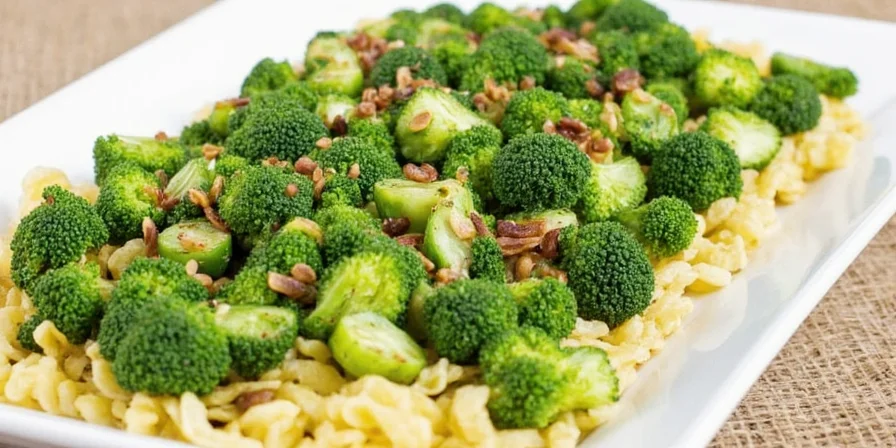
Cue this blog post. Whether you’re a spice pro or a home cook who just realized their spice jar is older than their Netflix password, we’ve got your back. Let’s dive into the world of dill substitutes that can rescue your dish—and your dignity.
What Is Dill, Anyway?
Dill is like the quirky friend at the dinner party—it adds bright, fresh flavor with hints of anise and lemon. Used both as a herb (fresh) and a seed (dried), it’s essential in pickling, salads, fish dishes, and those oh-so-classic potato salads.
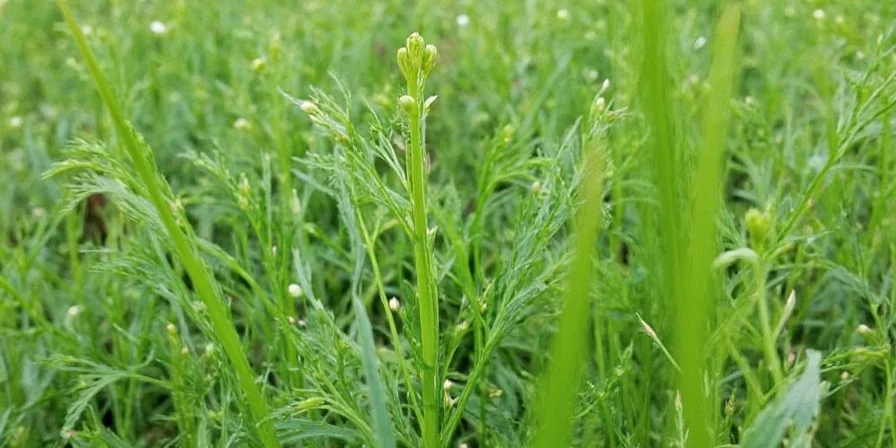
The problem? Dill isn’t always in stock, especially if you're using it during summer grilling season. So what do you do when dill leaves you high and dry?
Top 7 Dill Substitutes (With Flavor Profiles)
Here’s the good news: there are more dill alternatives than you think. Some mimic its herbal brightness, others bring a similar licorice-like zing, and a few might surprise you.
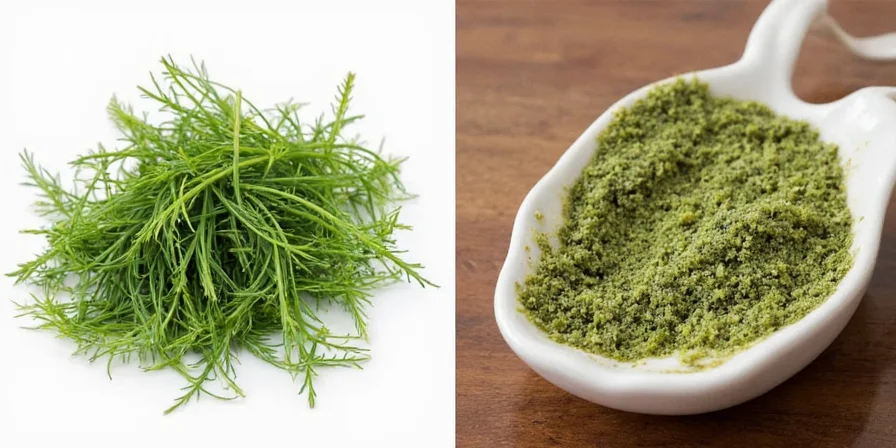
- Fennel Fronds: The most direct match for fresh dill, with a light licorice flavor.
- Tarragon: Sweet and slightly spicy, great for creamy sauces and seafood.
- Chervil: Mild and parsley-anise hybrid; perfect for delicate dishes.
- Parsley: A milder option, ideal for garnish or texture substitution.
- Cilantro: Not a direct swap but can add freshness if used sparingly.
- Caraway Seeds: For dried dill seed replacement with a stronger, earthy kick.
- Dried Dill Weed: In a pinch, yes—but you may need to double the quantity.
Comparison Chart: Dill vs. Its Alternatives
| Substitute | Flavor Profile | Best Use | Quantity Ratio (vs. Fresh Dill) |
|---|---|---|---|
| Fennel Fronds | Mild licorice, sweet | Salads, seafood, dressings | 1:1 |
| Tarragon | Sweet, anise-like, peppery | Chicken, eggs, cream sauces | 1:1 |
| Chervil | Delicate, parsley-anise blend | Herb butter, soups, omelets | 1:1 |
| Parsley | Grassy, neutral | Garnish, heartier dishes | 1:1.5 |
| Cilantro | Citrusy, soapy (to some) | Asian or Mexican dishes | 1:0.5 |
| Caraway Seeds | Earthy, licorice, bold | Bread, rye dishes, spice rubs | 1 tsp per 1 tbsp dill seeds |
| Dried Dill Weed | Less intense than fresh | Cooking/baking, not garnish | Double the amount |
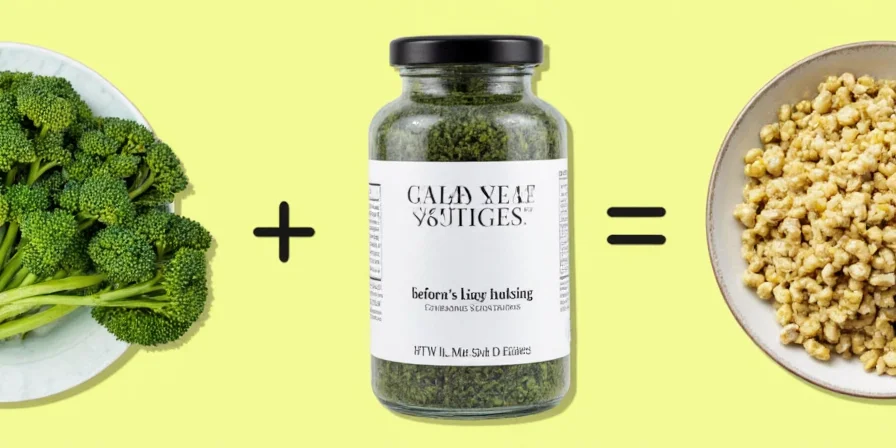
How to Use Each Substitute Like a Pro
Let’s break it down so you don’t accidentally end up with a cilantro explosion in your tzatziki.
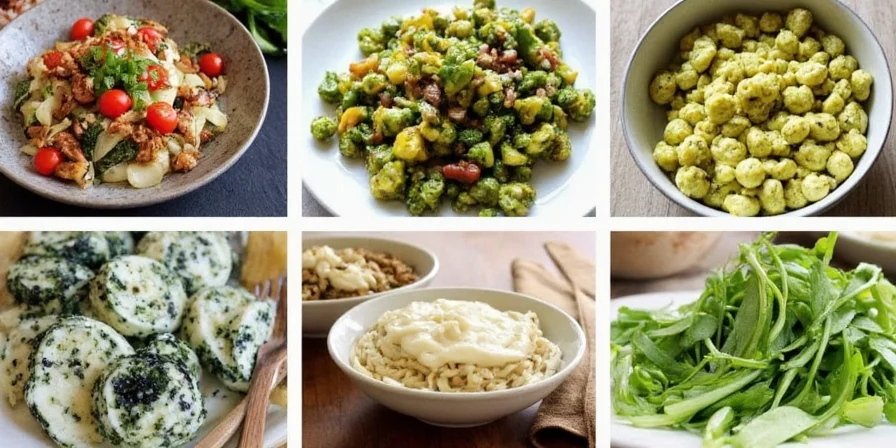
- Fennel Fronds: Use raw in salads or finely chopped over fish. Best if used fresh, not cooked too long.
- Tarragon: Great with vinegar, lemon, or mustard-based sauces. Ideal for chicken or egg dishes. Add toward the end of cooking.
- Chervil: Adds elegance to French-inspired recipes. Mix into herb blends or sprinkle before serving.
- Parsley: Can be substituted one-to-one-and-a-half. Use curly for crunch or flat-leaf for better flavor.
- Cilantro: Use sparingly and only if the recipe leans Asian or Latin American. Avoid in European-style dishes unless you want a cultural identity crisis in your mouth.
- Caraway Seeds: Best used whole in bread doughs or lightly crushed in hearty stews. Toasting brings out flavor.
- Dried Dill Weed: Double the quantity since it’s less potent than fresh. Good for baked goods or slow-cooked dishes.
Pro Tips & Funny Kitchen Fails
Kitchen wisdom comes from trial, error, and the occasional herb-induced disaster. Here are some dos and don'ts to keep your culinary reputation intact:
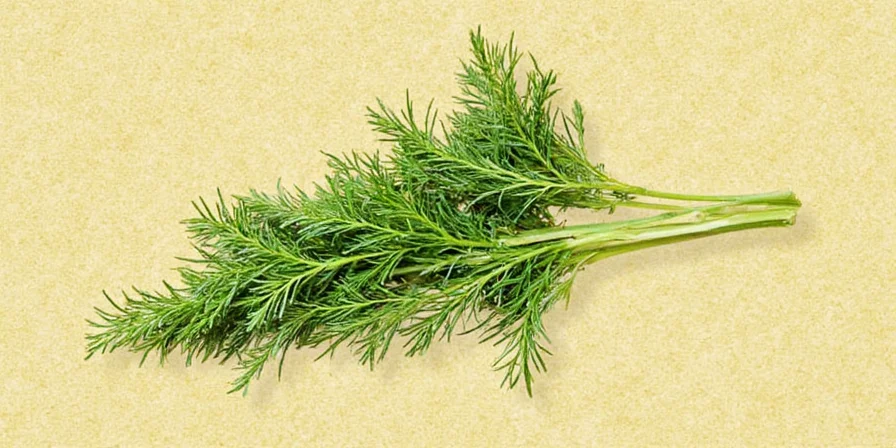
- DO taste-test your substitute before adding it all in. Herbs can be powerful!
- DO toast caraway seeds or fennel seeds gently in a dry pan to enhance their aroma.
- DO consider the cuisine of your dish before swapping. Cilantro in a German potato salad? Probably not.
- DON’T substitute cilantro for dill unless you’re ready to explain to your guests why the salad tastes like tacos.
- DON’T use too much tarragon—it can become overwhelming quickly.
- DON’T use dried dill weed in place of fresh in cold dishes like dips or dressings. It’ll feel like chewing potpourri.
Fun Fact: One of our editors once replaced dill with rosemary in a potato salad. The result was… woody, earthy, and slightly medieval. We still haven’t forgiven him.
Conclusion: No More Dill-emma
There you have it—a guide to saving your dish with humor, grace, and a little bit of spice knowledge. Next time you find yourself without dill, remember: you’ve got options. And maybe a backup herb stash in your pantry wouldn’t hurt either.
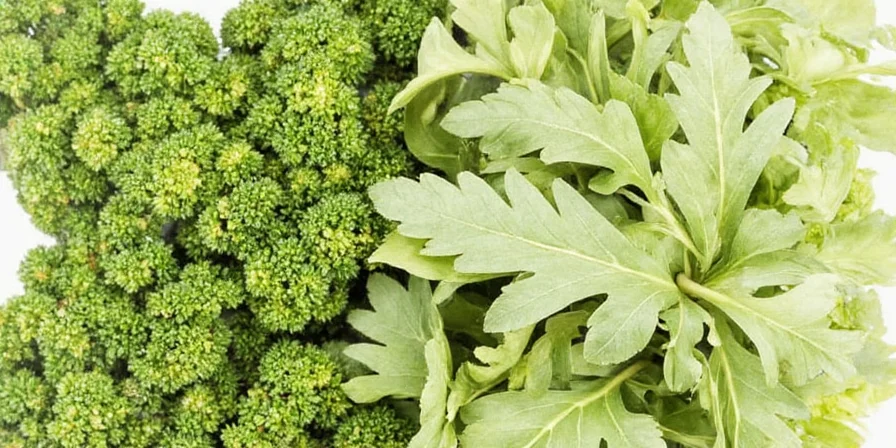
So go ahead—experiment, substitute, and laugh at your own kitchen mistakes. Because at the end of the day, no one ever went to jail for using too much parsley.
Stay spicy, friends.

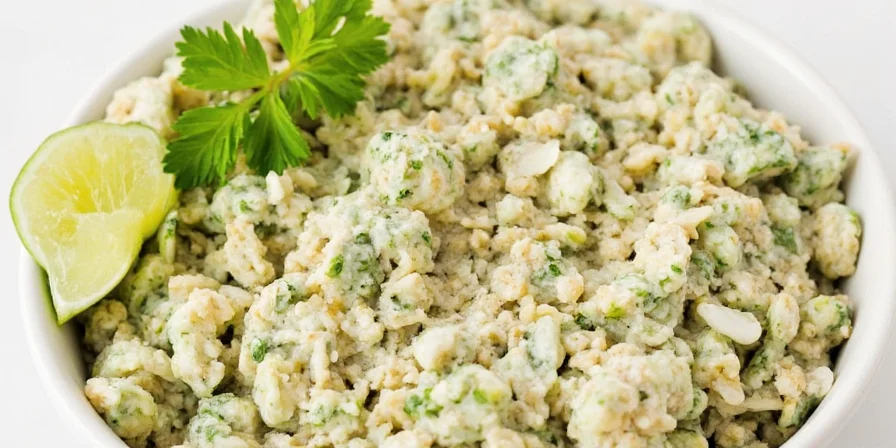









 浙公网安备
33010002000092号
浙公网安备
33010002000092号 浙B2-20120091-4
浙B2-20120091-4